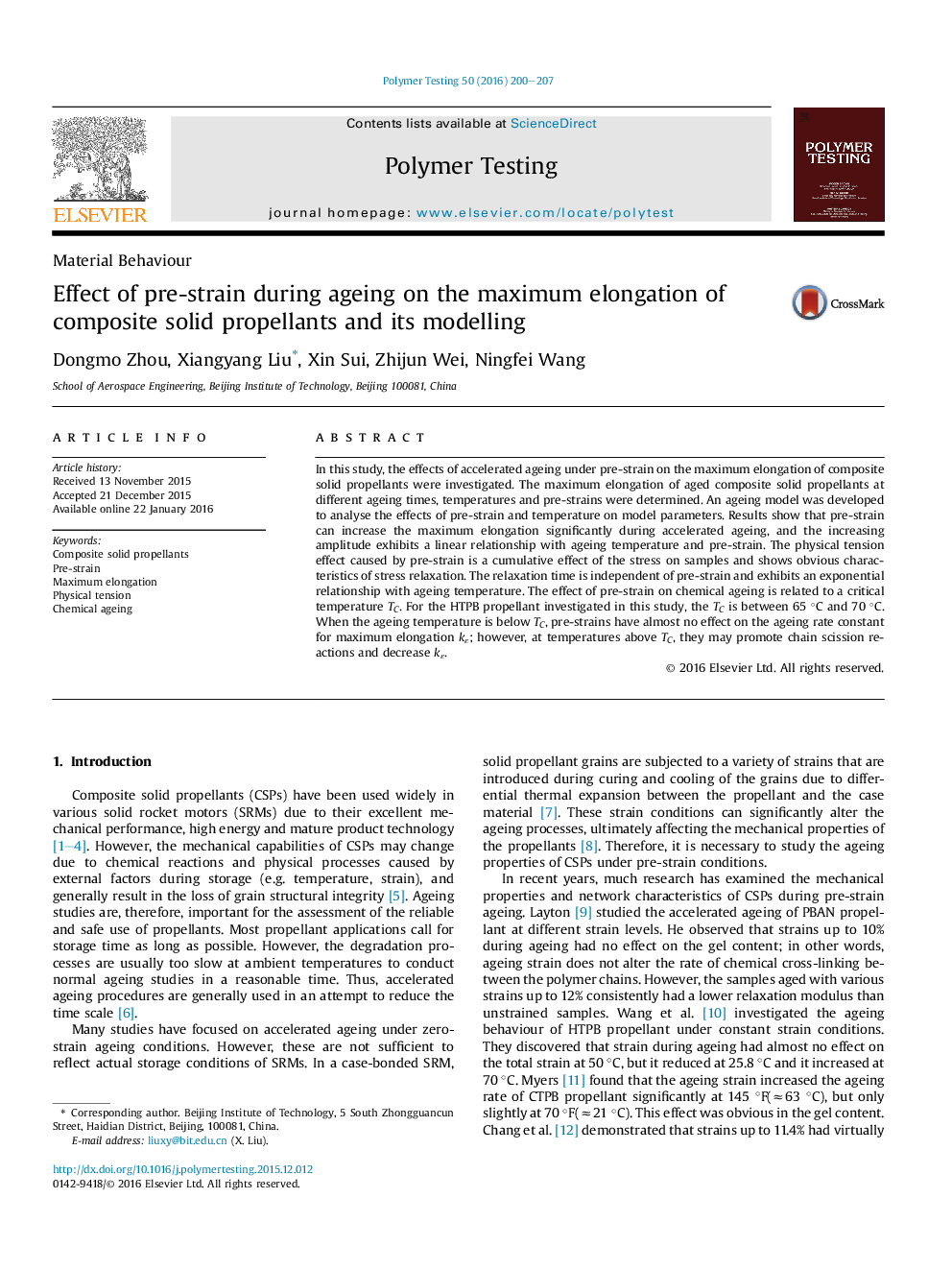| Article ID | Journal | Published Year | Pages | File Type |
|---|---|---|---|---|
| 5205847 | Polymer Testing | 2016 | 8 Pages |
Abstract
In this study, the effects of accelerated ageing under pre-strain on the maximum elongation of composite solid propellants were investigated. The maximum elongation of aged composite solid propellants at different ageing times, temperatures and pre-strains were determined. An ageing model was developed to analyse the effects of pre-strain and temperature on model parameters. Results show that pre-strain can increase the maximum elongation significantly during accelerated ageing, and the increasing amplitude exhibits a linear relationship with ageing temperature and pre-strain. The physical tension effect caused by pre-strain is a cumulative effect of the stress on samples and shows obvious characteristics of stress relaxation. The relaxation time is independent of pre-strain and exhibits an exponential relationship with ageing temperature. The effect of pre-strain on chemical ageing is related to a critical temperature TC. For the HTPB propellant investigated in this study, the TC is between 65 °C and 70 °C. When the ageing temperature is below TC, pre-strains have almost no effect on the ageing rate constant for maximum elongation kε; however, at temperatures above TC, they may promote chain scission reactions and decrease kε.
Related Topics
Physical Sciences and Engineering
Chemistry
Organic Chemistry
Authors
Dongmo Zhou, Xiangyang Liu, Xin Sui, Zhijun Wei, Ningfei Wang,
